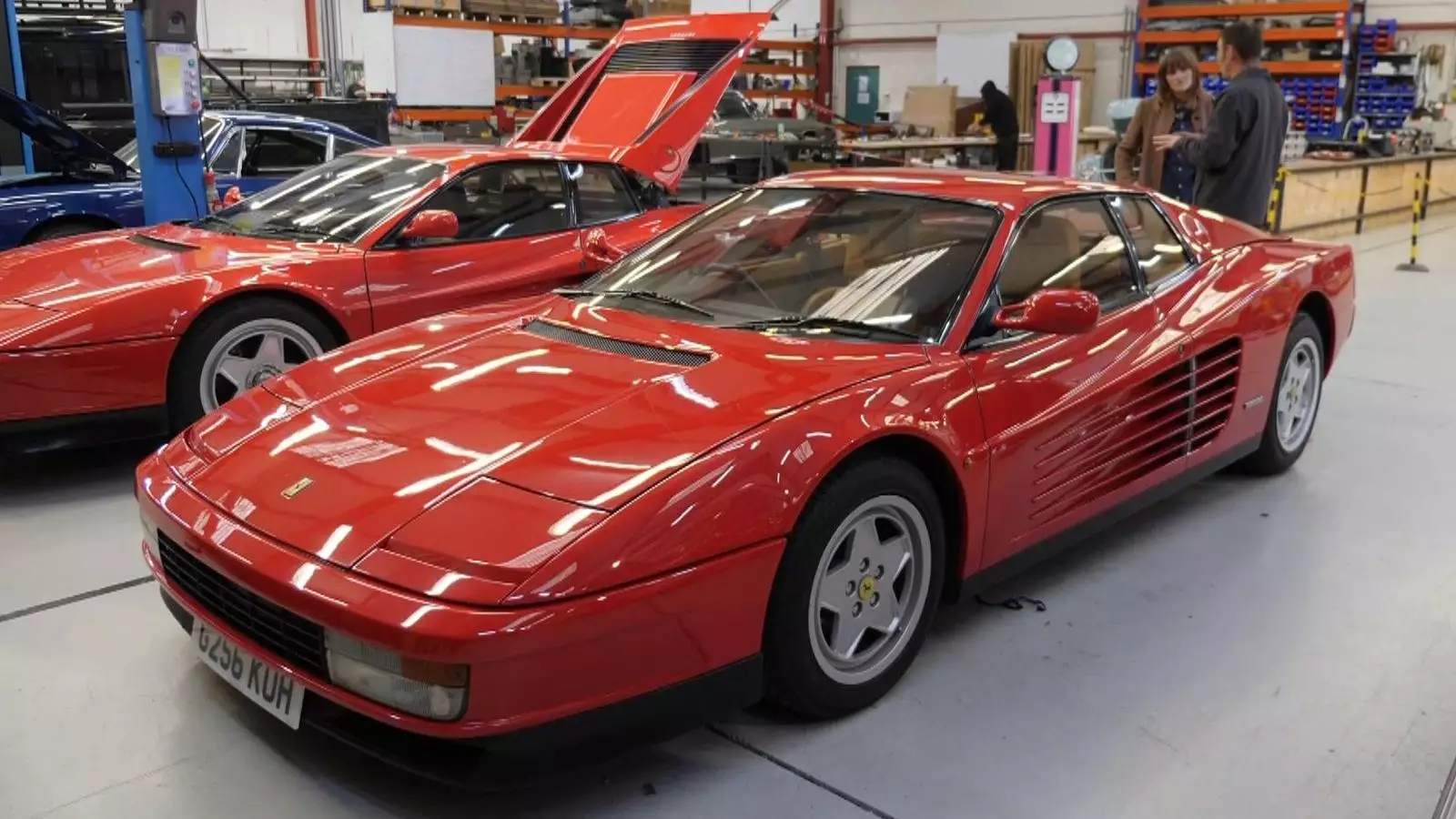Owning a classic car has long been celebrated as a sensory experience, where leather interiors, the smell of fuel, and the growl of the engine come together to ignite a sense of nostalgia and passion. However, in a workshop on an industrial estate in Newtown, mid-Wales, this traditional symphony of cues is being transformed. Richard Morgan, the owner of Electric Classic Cars, has taken on the challenge of bringing vintage vehicles into the 21st century by replacing their internal combustion engines with electric motors.
In this bustling workshop, Richard’s team meticulously paves the way for a new era of classic cars. Beginning at the door, the cars’ original engines are stripped away, making room for a customized electric motor. Remarkably, apart from the engine, the structure and essence of the vehicle remain untouched. Instead, a team of skilled fabricators employs their expertise to seamlessly integrate batteries, motors, and wires. With precision, they fashion boxes and supports that ingeniously accommodate the new engine, securing them into place. This meticulous process allows these cherished classics to embrace the efficiency and power of electric technology while retaining their aesthetic integrity.
The commitment to restoring classic cars extends beyond their mechanical transformation. Approximately 40% of the batteries used in these upgrades are recycled from other electric vehicles, often salvaged from accidents. Electric Classic Cars has gone as far as to exhaust the UK supply of second-hand EV batteries, demonstrating a commitment to minimizing environmental impact. However, Richard emphasizes that his motive isn’t solely about saving the planet; it is about enabling classic car enthusiasts to use their beloved vehicles as daily drivers.
When Richard first embarked on this journey years ago, he faced skepticism and criticism. Many believed that he was eradicating the soul and character of these classic cars. However, as electric vehicles become more prevalent, perceptions are shifting. The appeal of a silent yet powerful drive is becoming increasingly understood. It is akin to modernizing a home; the cost of retrofitting these motors can be substantial, comparable to a house deposit. Richard explains that this investment is not primarily driven by the quest for financial savings, but rather the desire to ensure future generations can enjoy and appreciate these classic cars.
Despite the growing acceptance of electric conversions, there remain purists within the classic car community who remain unconvinced. Jason Mills, the founder of Vintage Vehicle Restorations, located in Ludlow just over the border, argues that the original engine is an integral part of a classic car’s identity. Restoring a car with an electric motor, in his opinion, veers away from the authenticity that enthusiasts hold dear. It is an ongoing debate within the community, with purists valuing the sound, speed, noise, and aroma of old engines.
While opinions may clash, Richard Morgan and his team at Electric Classic Cars continue to transform the landscape of classic car ownership. By future-proofing these timeless machines, they ensure their relevance and usability for years to come. The fusion of classic aesthetics with modern electric technology presents an opportunity for these iconic vehicles to remain on the road, offering a reliable, clean, and exceptionally indulgent driving experience. It is a delicate balancing act between embracing the future and cherishing the past, navigating the evolving needs and desires of classic car enthusiasts.


Leave a Reply